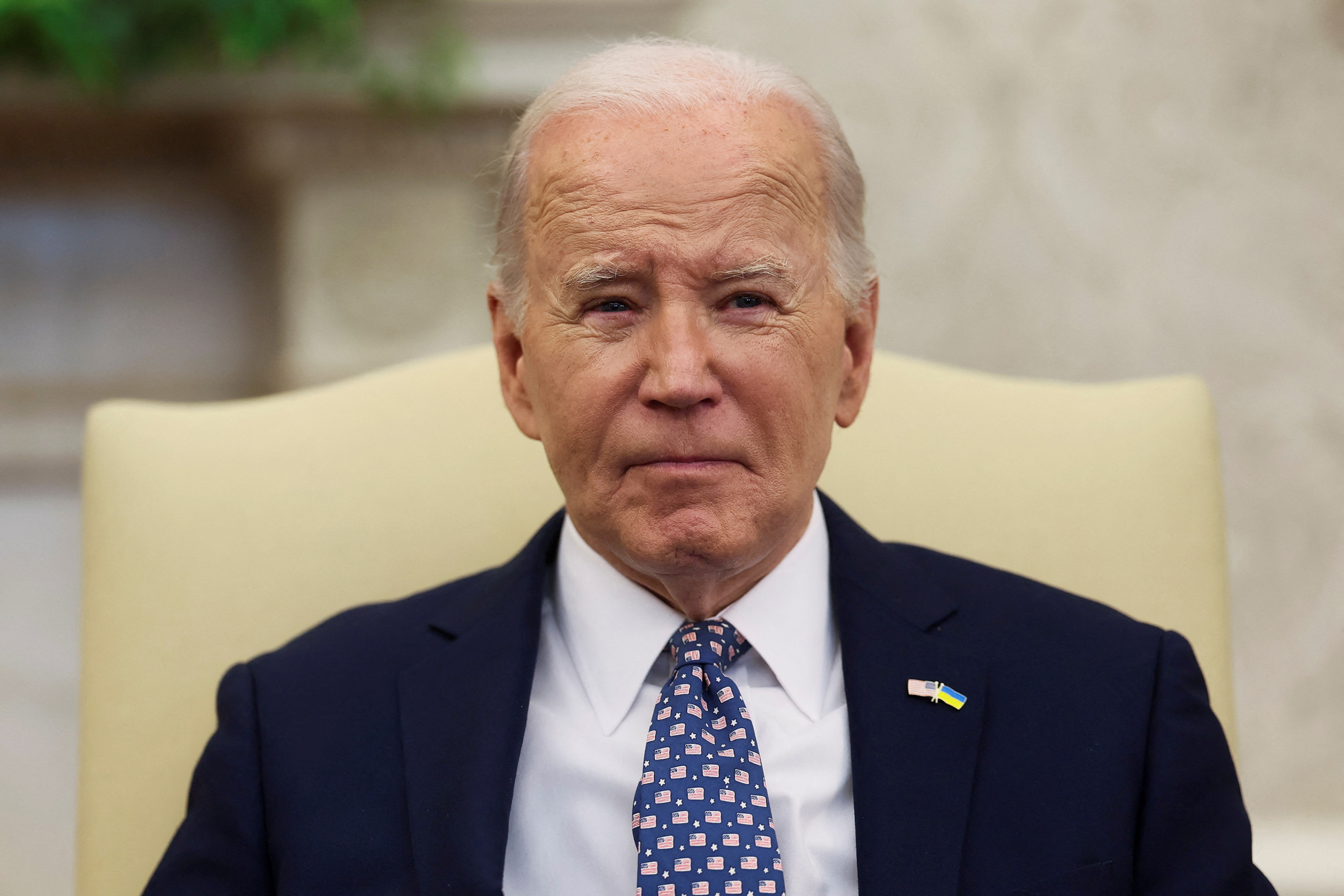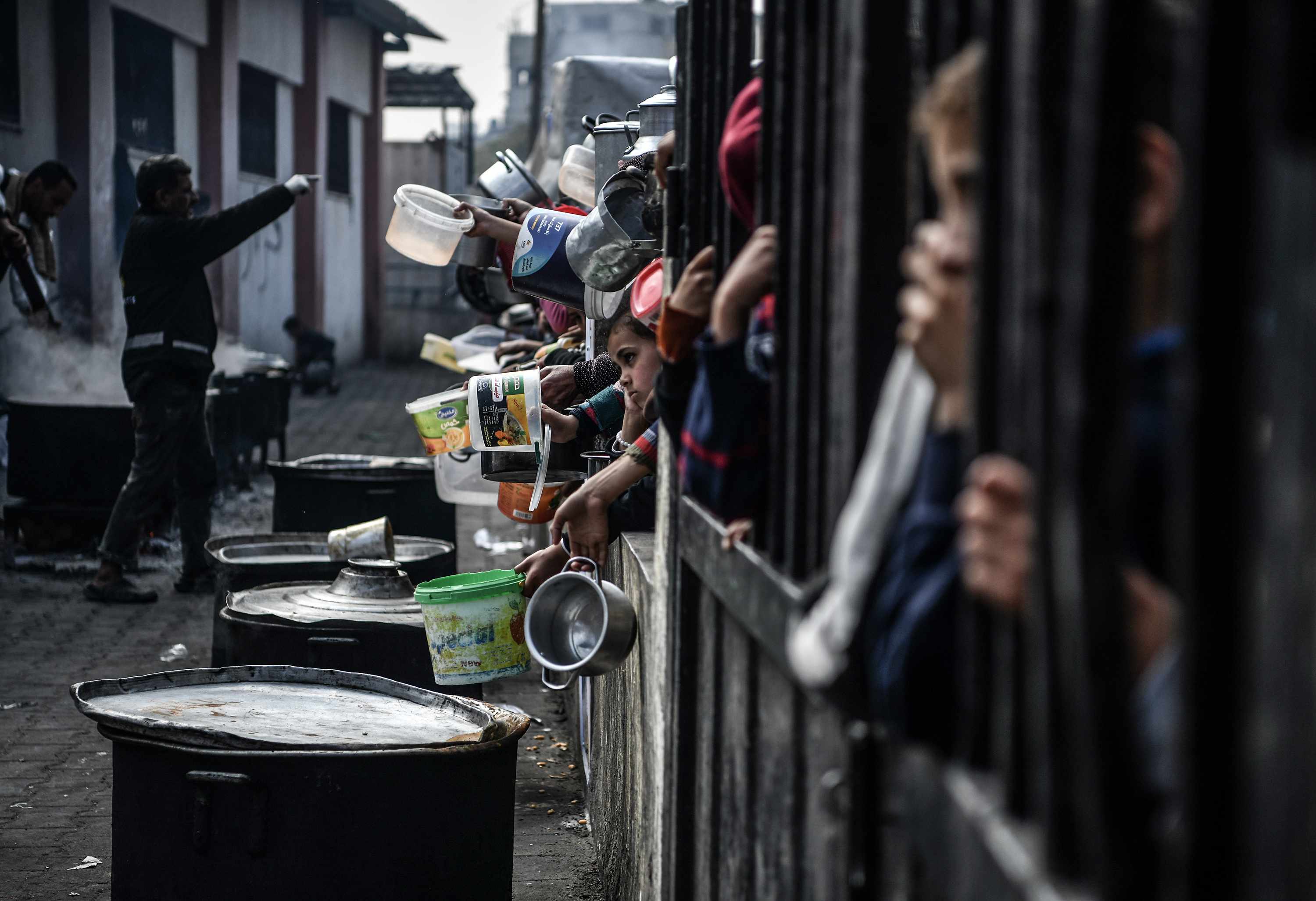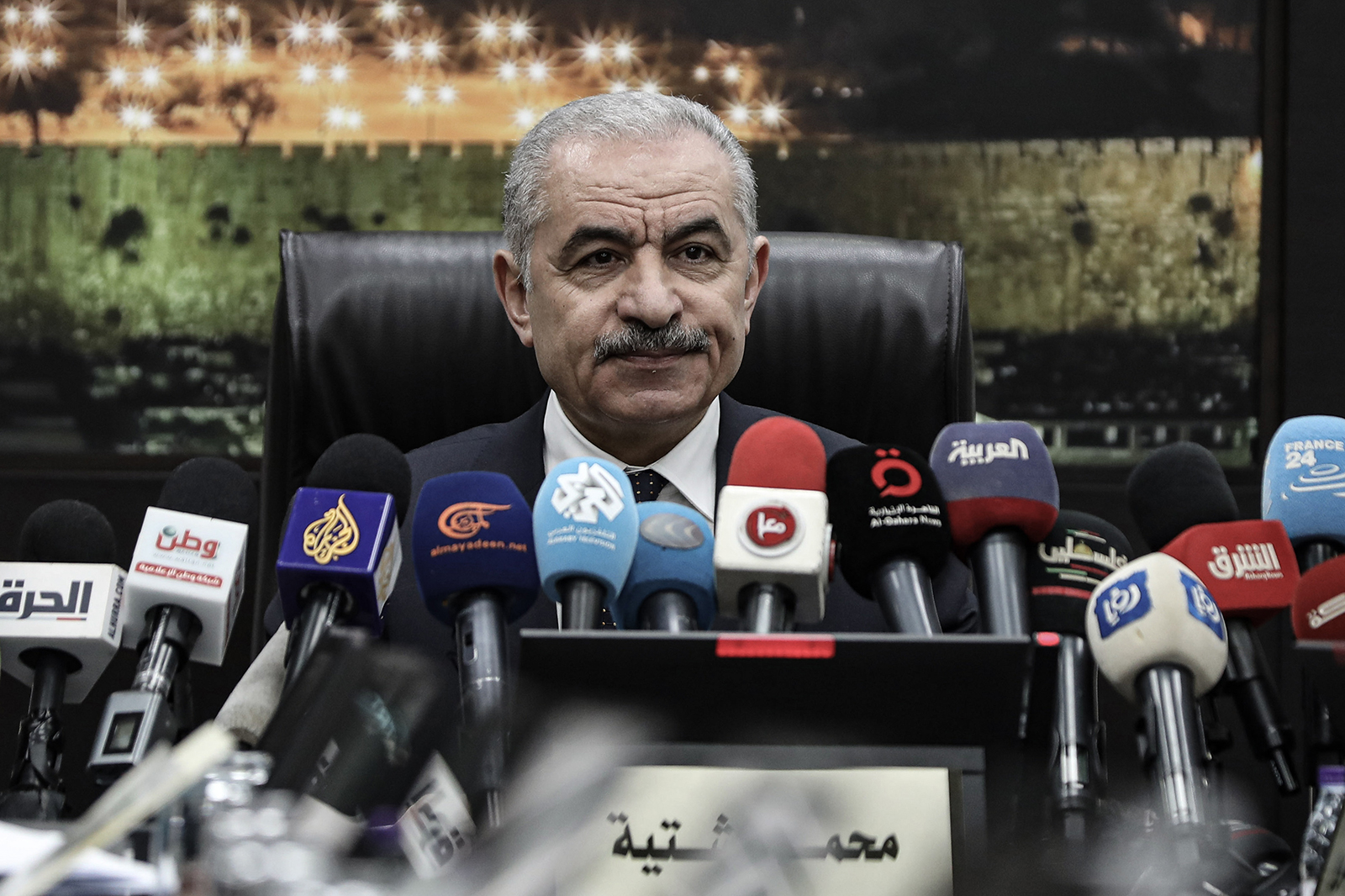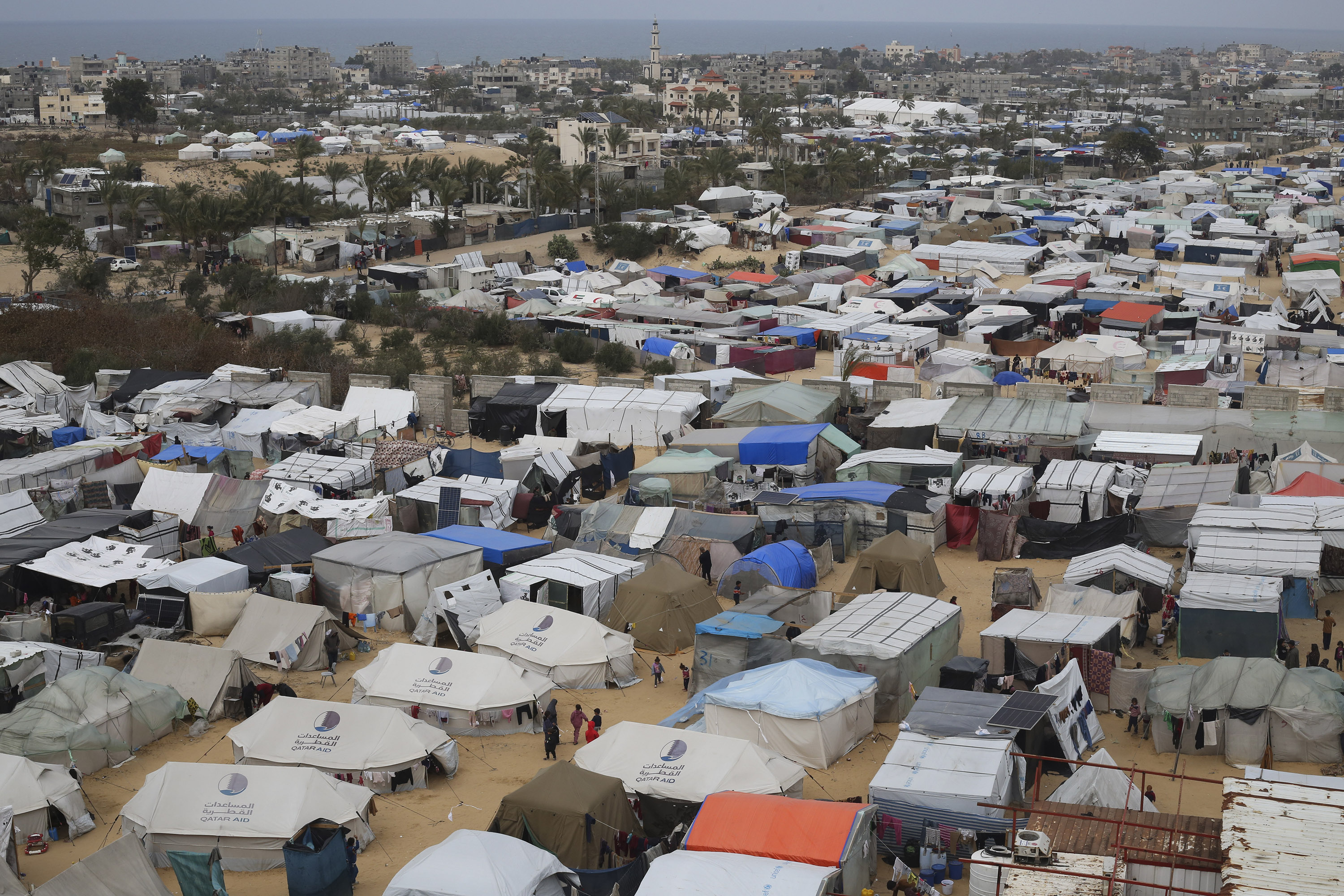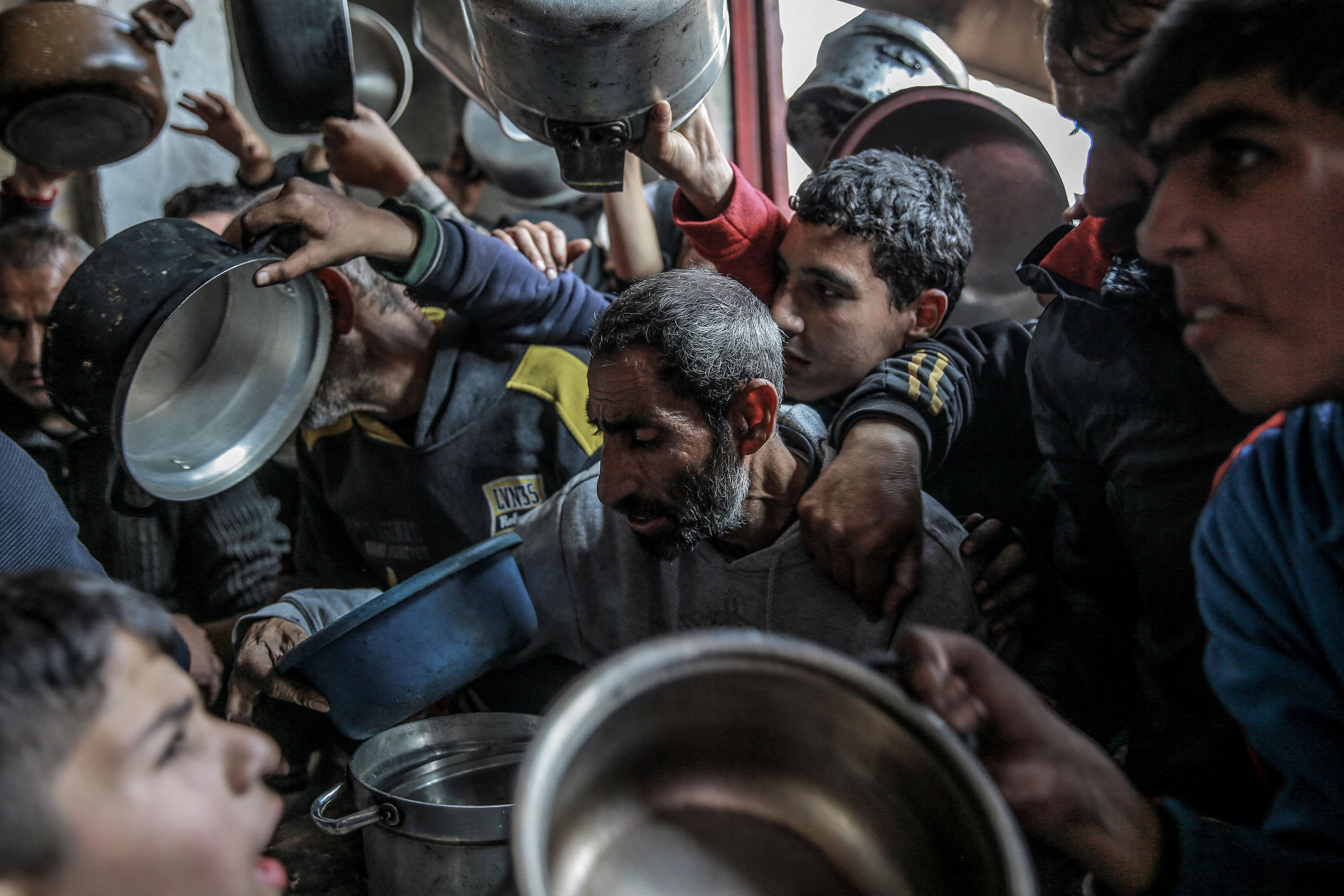
More than a half a million people in Gaza are on the brink of famine, United Nations agencies warned on Tuesday, as the UN Security Council discussed food security in the stricken Palestinian enclave.
The UN Office for the Coordination of Humanitarian Affairs said at least 576,000 people across Gaza are "facing catastrophic levels of deprivation and starvation."
Meanwhile, the UN World Food Programme (WFP) warned "of a real prospect of famine by May, with 500,000 people at risk if the threat is allowed to materialize."
"Today, food aid is required by almost the entire population of 2.2 million people. Gaza is seeing the worst level of child malnutrition anywhere in the world," Carl Skau, WFP Deputy Executive Director, told the Security Council.
"One child in every six under the age of 2 is acutely malnourished."
Ready for action: As ceasefire negotiations continue, Skau said the WFP "is ready to swiftly expand and scale up operations" if an agreement is reached.
"Immediate action is required to enable a huge increase in the volume of food and other humanitarian supplies," he said.
"If nothing changes, a famine is imminent in northern Gaza."
